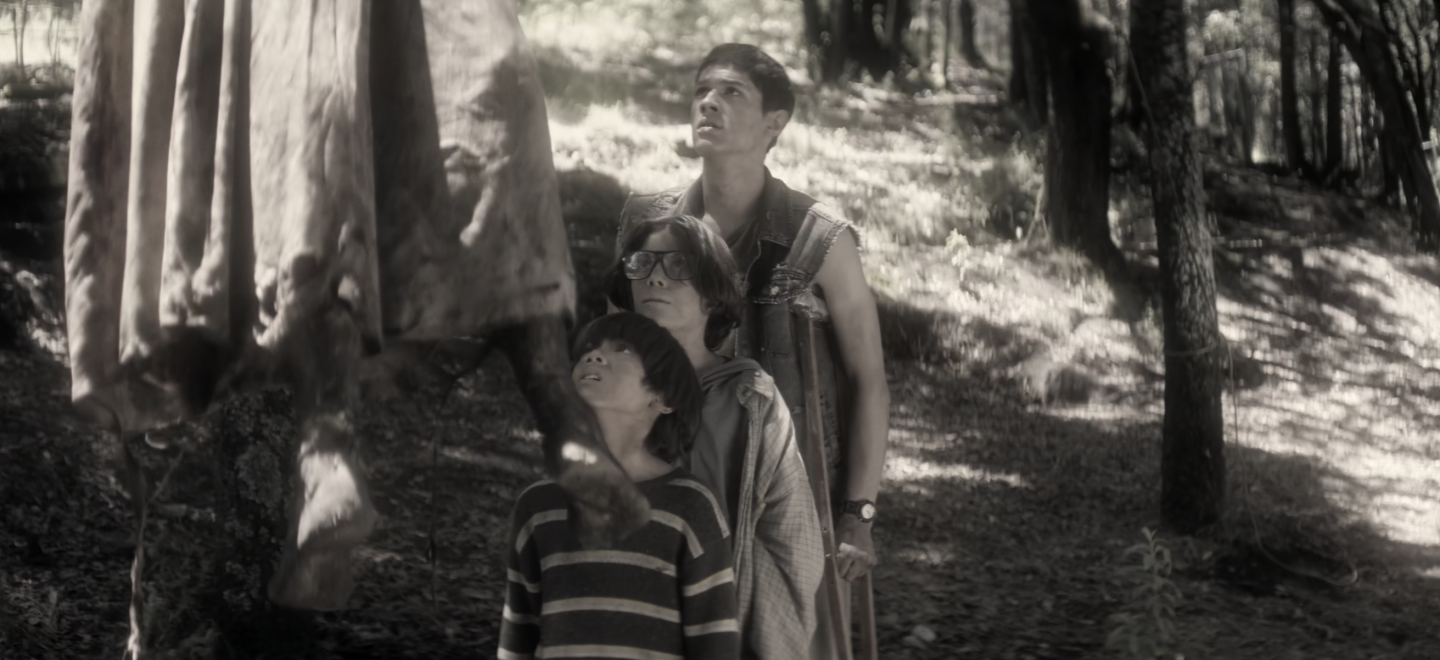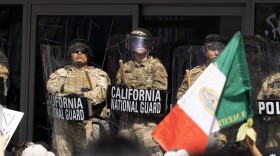Isaac Ezban's "Párvulos: Children of the Apocalypse" opens today in multiple theaters, and I love seeing films from filmmakers whom I have met at local festivals.
I met Ezban in 2016 at the San Diego Latino Film Festival when he was screening his second feature film, the wonderfully eerie "Los Parecidos." Ezban was influenced by American pop culture when he was growing up, and "Los Parecidos" pays obvious and loving homage to "The Twilight Zone." Yet while "Los Parecidos" uses a format similar to "The Twilight Zone," it references historical events in Mexico, such as the 1968 student demonstration that ended in violence at La Plaza de las Tres Culturas at Tlatelolco, Mexico City.
Exban's latest film draws on the zombie/infected horror scenario to give us a dystopian future ravaged by a viral apocalypse. But again, he gives the story his own unique spin.
The story revolves around three young brothers — the eldest, Salvador (Felix Farid Escalante); tweener, Oliver (Leonardo Cervantes); and the youngest, Benjamin (Mateo Ortega). The film does not focus on the violent onset of this apocalypse but rather on its aftermath, as people have to learn to cope with a very different world.
The brothers have created a refuge in a remote cabin deep within the woods. They have their routines of scavenging for food and supplies, but the youngest also find time to just be kids and play. Salvador, however, feels the need to be the adult since their parents are not present. He also feels responsible for keeping a dark secret locked in the basement.
Ezban understands that the best zombie films are never about zombies. The zombies, or infected people, are merely the catalyst or the backdrop for a story about something else. “Night of the Living Dead” is about class and race; “Dawn of the Dead” is about consumerism; “Shaun of the Dead” is about apathy. Zombie films, more than any other subdivision of horror, have consistently, over the decades, returned to themes about social issues and the fundamental question of what makes us human. For Ezban, zombies are the backdrop for a story about family.

The film opens with a voiceover from Oliver in which he recalls a teacher explaining to him what “natural constants” are: things like time passing, birth, death and gravity. Oliver then recalls sharing this with his father, who countered with a different answer. He tells his son there are only two constants: family and change. And Ezban’s film is about what happens when members of a family change, and asks if they are still family.

I love zombie films because what makes zombies appealing is also what makes them terrifying: they look like us, they once were us, but they’re not us anymore. That places them in a unique position to reflect real issues that we may not want to confront. On a certain level, for me, zombies reflect my fear of things like Alzheimer’s and dementia — real diseases that can change the people we know and love into something different.
It’s much easier to kill a monster, an alien or a masked stalker than to kill someone who was a loved one and has become infected. In that respect, zombies can spur conflicting emotions about how to deal with them. Zombies can also bring up questions about whether they are still human and force us to ask if there is a point when we stop being human. These are the things that make zombie films so fascinating for me, and Ezban taps into a lot of that.
His film is a horror film filled with the terror of infection, violence and a hostile world. But it is also a compelling family drama in which family members have to face very hard choices about how to care for each other and what sacrifices they are willing to make. You can even read this as an allegory about children having to take care of parents and the lengths to which they are willing to go to keep that bond.

Visually, “Párvulos” is drained of color except for the occasional reds — be it worms that the boys need to eat to survive or blood. The desaturation is fitting for a dystopian world, and it makes the sudden bursts of muted color more impactful. A bloody encounter is like a wake-up call, reminding us that the refuge the boys have created is not entirely safe. Ezban also uses art that the boys create as another means to convey the horrors of the world they now face, while also referencing the lives they once had.
The young cast is exceptional. Escalante conveys the weight of responsibility Salvador feels; Cervantes gives Oliver an engaging curiosity and surprising strength; and Ortega, as the youngest, is touching as he clings the most to the hope for a return to normalcy. Ezban also makes clever casting choices with Noé Hernández as a threatening intruder into the boys’ world. Hernández starred in a very different type of dystopian family drama in “We Are the Flesh,” where he was a seductive and menacing presence. That film also played at our San Diego Latino Film Festival.
“Párvulos” uses the trappings of the horror genre to create a vivid and ultimately poignant family drama.
















